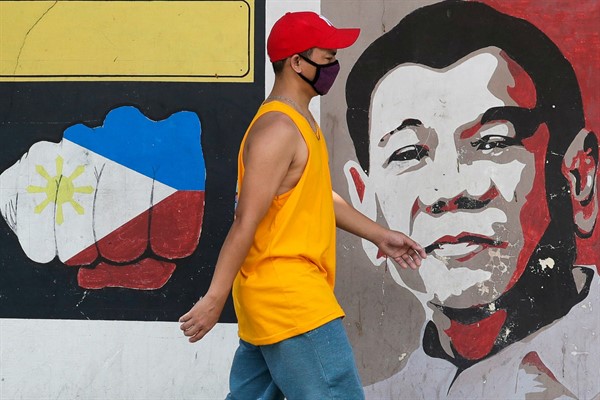Rodrigo Duterte’s election as president of the Philippines in May 2016 defied the country’s political history. He was the first candidate from the troubled southern island of Mindanao to ascend to the presidency, and the first to be elected while serving as a local politician. This foul-mouthed, unfashionably attired mayor of Davao City, a thousand kilometers away from “imperial Manila,” easily defeated the runner-up, Manuel “Mar” Roxas, a wealthy, American-educated scion of a once-powerful political dynasty, by more than 15 percentage points.
Over the next two years, as his single, six-year presidential term draws to a close, Duterte has another chance to defy recent Philippine political history. Since the fall of dictator Ferdinand Marcos in 1986, no elected president has seen their favored candidate win the succeeding presidential election. The influence of Philippine leaders tends to wane during the final two years of their terms, leaving them with little political clout after leaving office. Duterte’s last three predecessors have even had criminal charges filed against them by the administrations that succeeded them.
But Duterte is in a strong position to guide a favored candidate to victory in the next presidential election in 2022. If he does, he will become the most consequential Philippine leader since Marcos. If he fails, he could become the fourth ex-president in a row to face criminal charges, given the many documented atrocities committed by his security forces during his notorious anti-drug crackdown. At least 8,663 people have been killed in the effort, according to official figures, though some watchdog groups say the real death toll is three times higher. Human Rights Watch claims this ongoing campaign of violence could amount to crimes against humanity, and Duterte himself has compared it—favorably—to the Holocaust. A recent report by the United Nations high commissioner for human rights, Michele Bachelet, contends that it has been executed “often at the expense of human rights, due process rights, the rule of law and accountability.”

